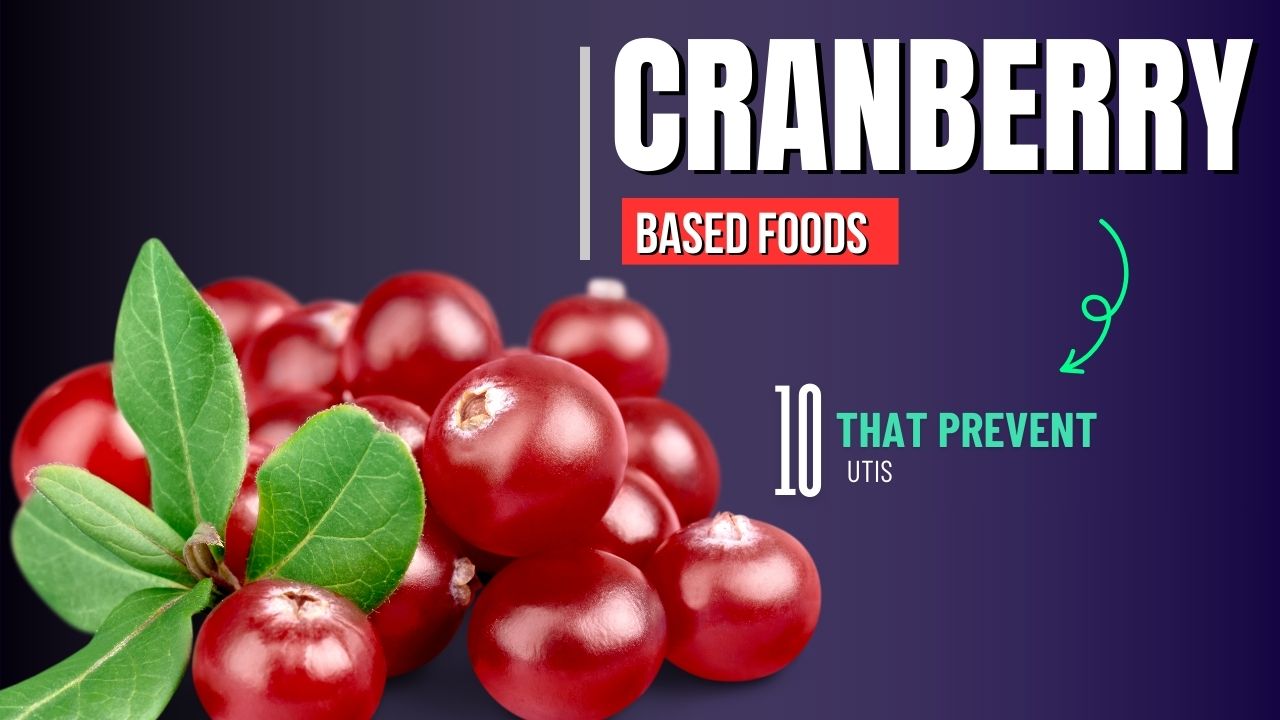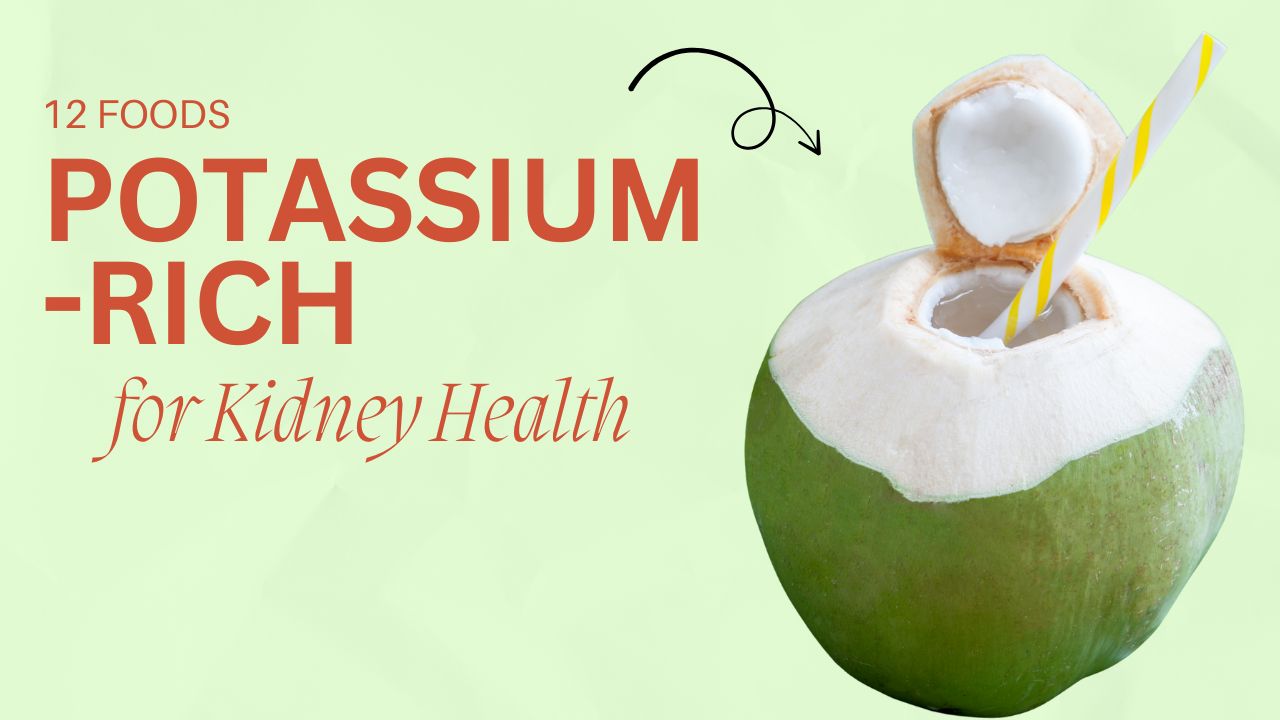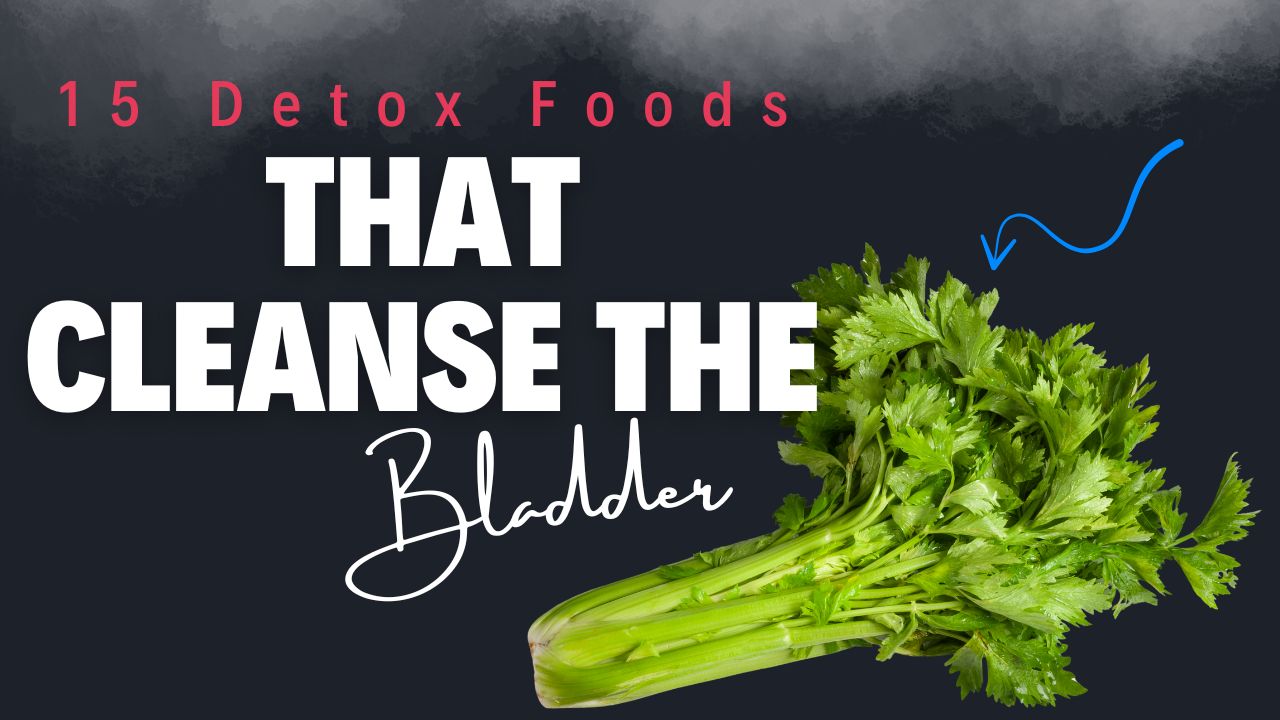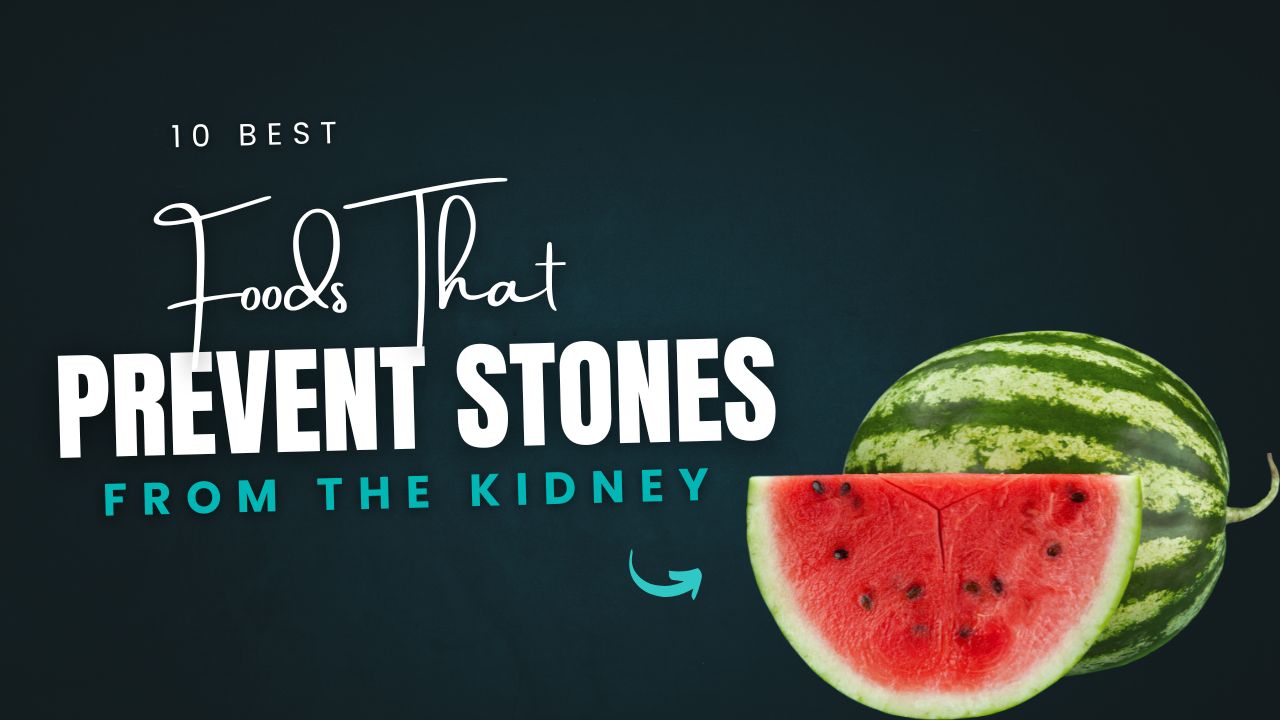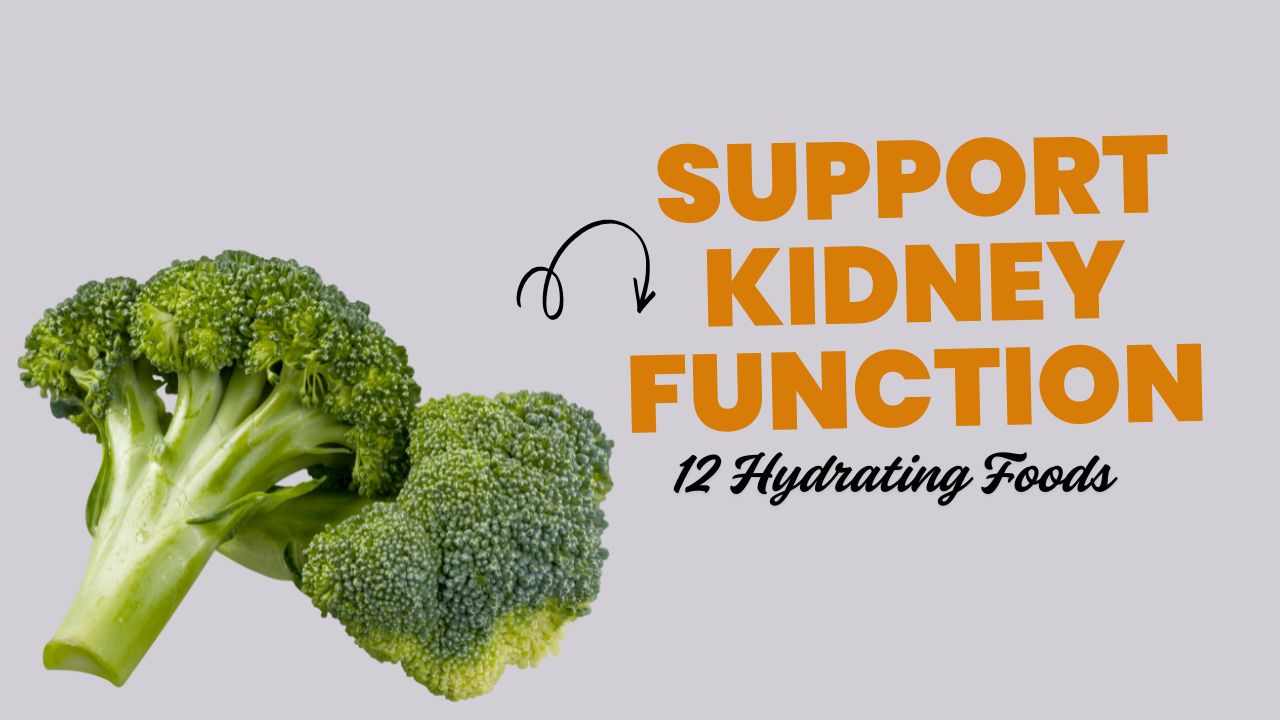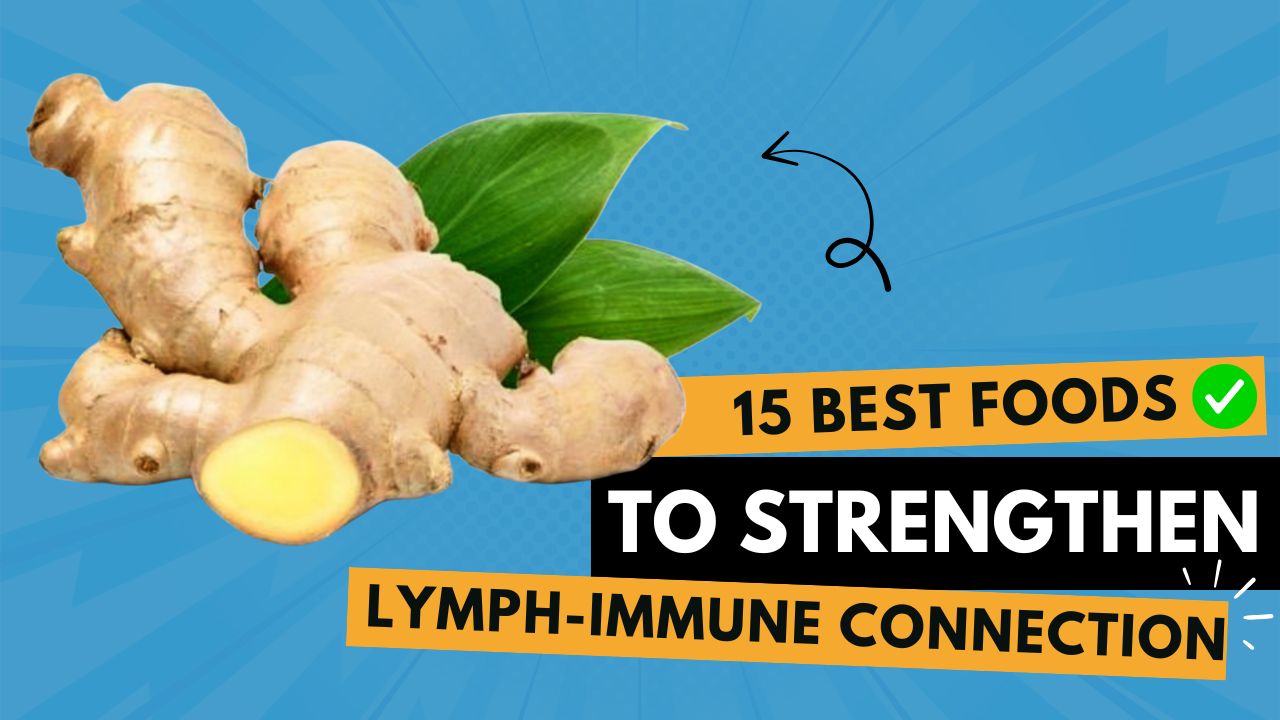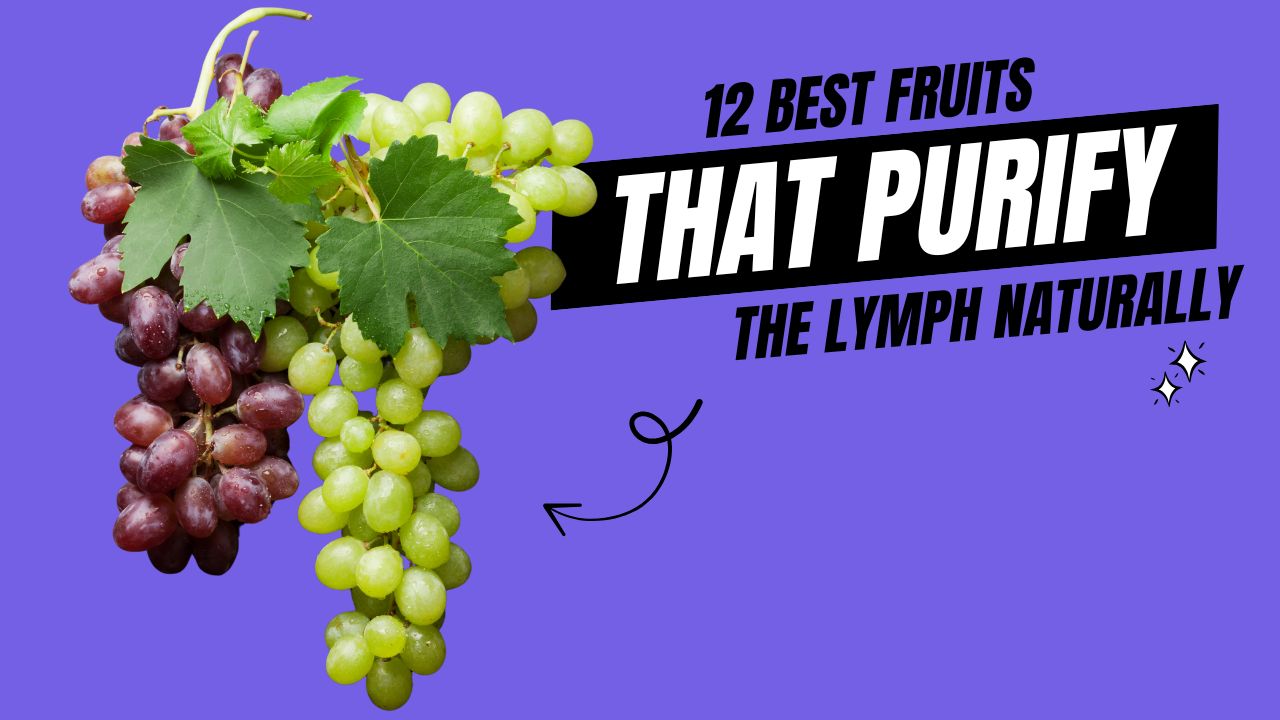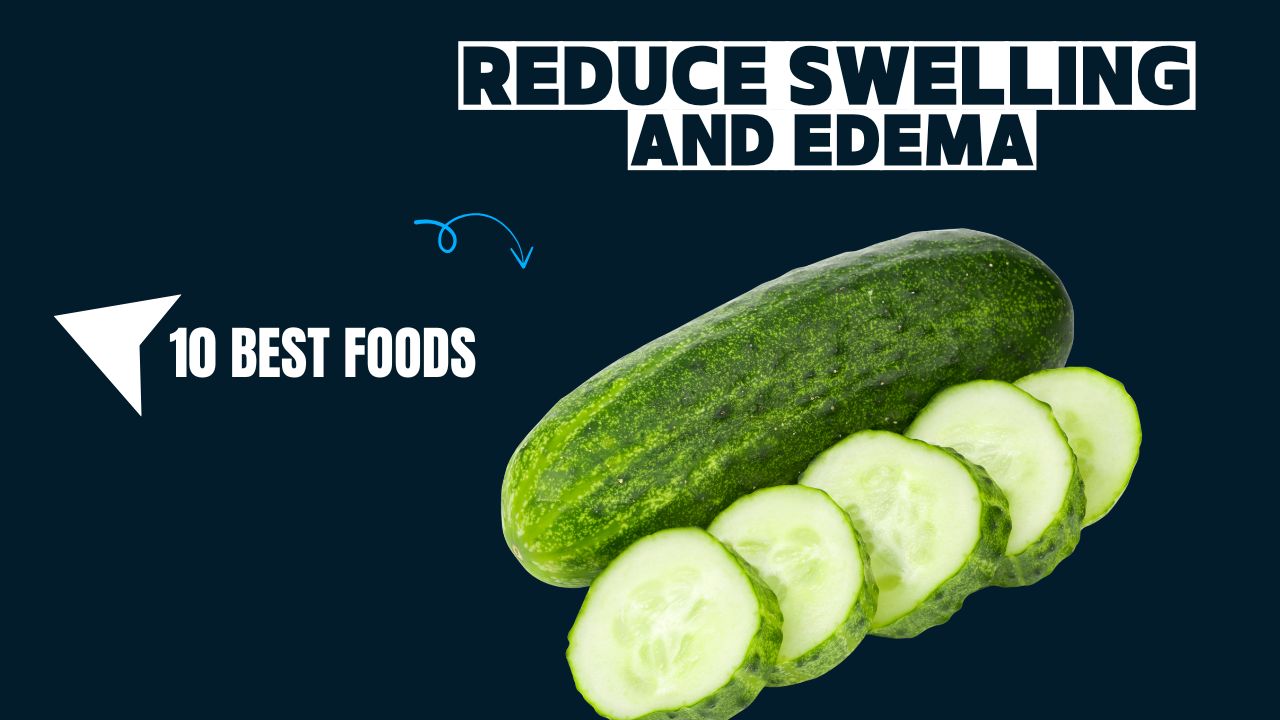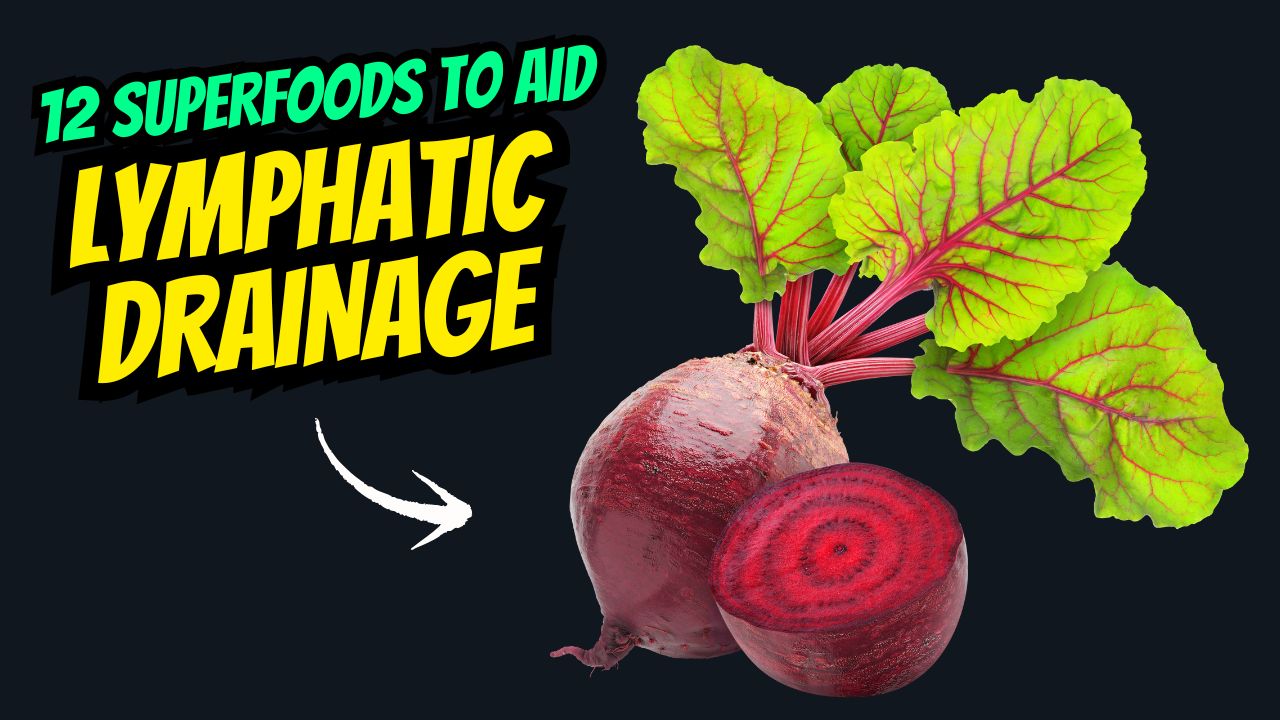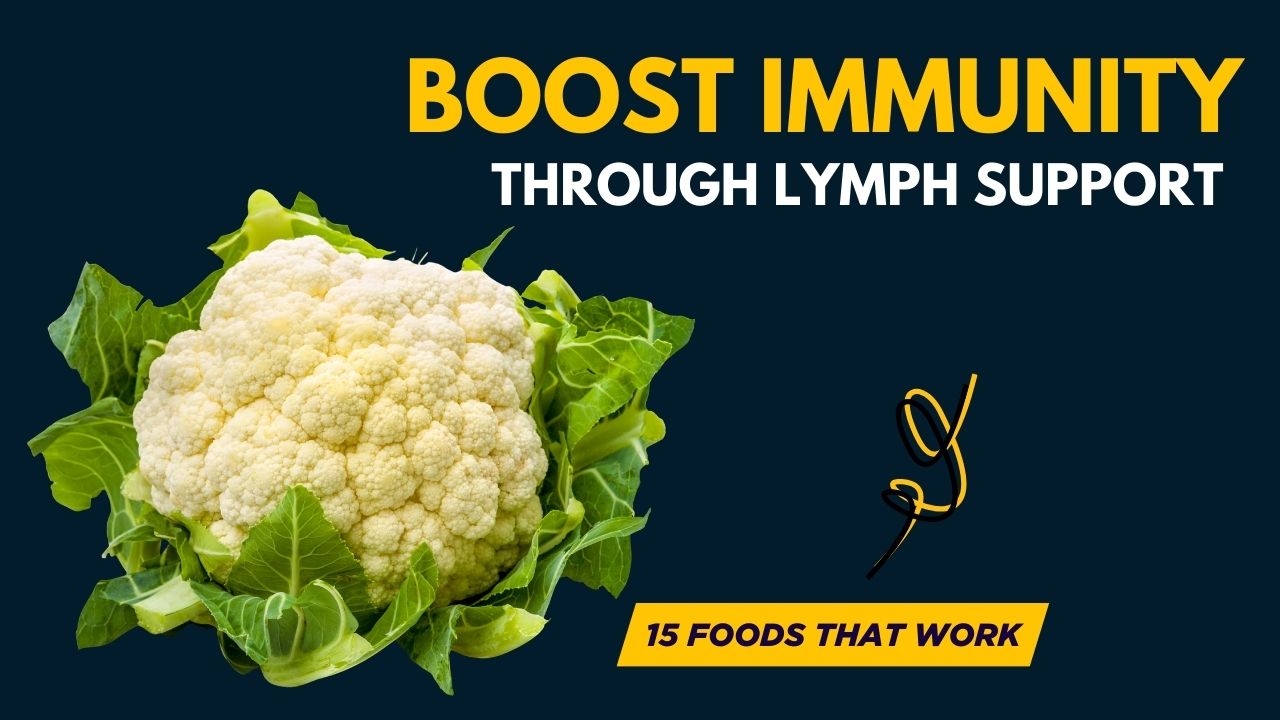Did you know that 1 in 10 people will develop kidney stones at some point in their lives? These tiny, rock-like formations in the kidneys can cause excruciating pain, nausea, and even lead to infections if not managed properly.
While genetics and medical conditions play a role, diet is one of the most powerful factors influencing the risk of kidney stone formation.
Many people believe avoiding calcium helps prevent kidney stones, but that’s a myth. In fact, not getting enough calcium can actually increase your risk.
The truth is, choosing the right foods can act as natural protection against stones by balancing minerals, reducing oxalates, and keeping the urinary tract flushed.
In this article, we’ll explore 10 powerful foods that naturally prevent kidney stones, along with tips on how to eat them, who should include them in their diet (and who should avoid them), storage tips, and possible side effects.
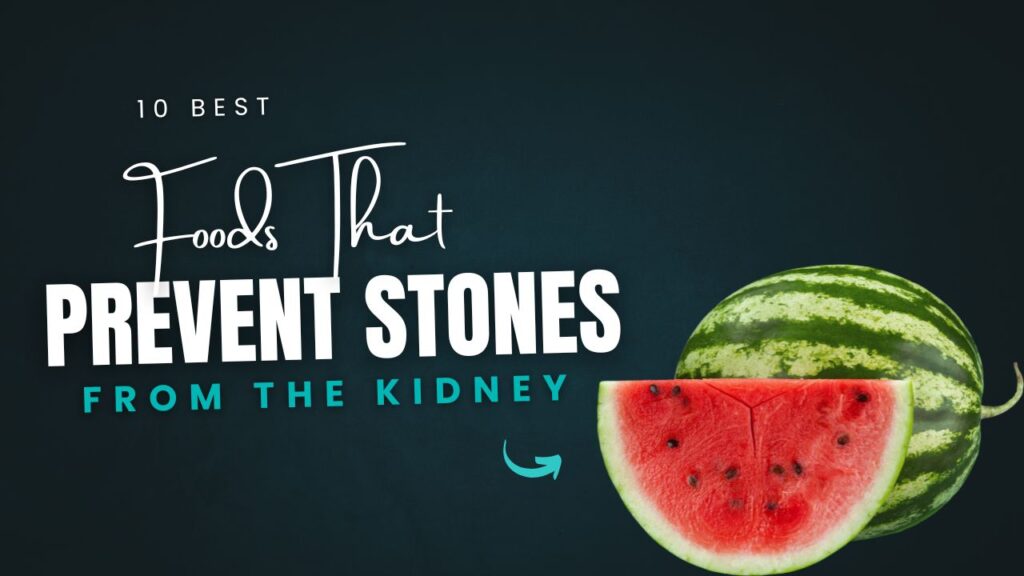
Table of Contents
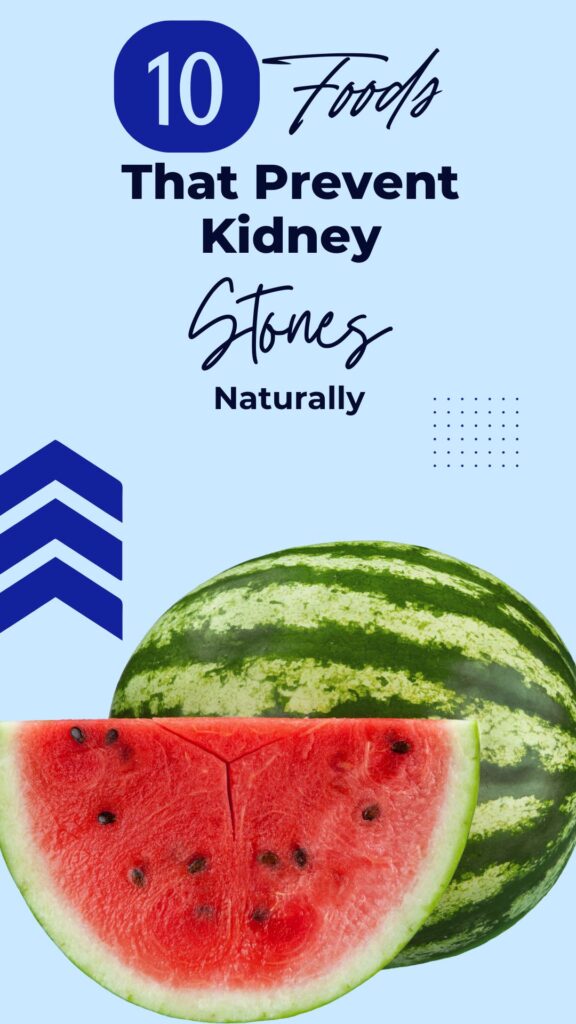
10 Best Foods To Prevent Kidney Stones
1. Lemon & Citrus Fruits
Citrus fruits like lemon, orange, and grapefruit are rich in citrate, a natural compound that prevents calcium from binding with oxalates, reducing stone formation.
Best Ways to Eat or Use It
- Squeeze fresh lemon into water (lemon water).
- Add citrus slices to salads or smoothies.
- Use lime juice as a natural dressing.
Who Should Eat / Avoid
- Good for: Anyone prone to kidney stones, athletes who need hydration.
- Avoid/Limit if: You have acid reflux or citrus allergies.
Storage & Buying Tips
- Choose firm, brightly colored fruits.
- Store in the refrigerator to keep them fresh for up to 3 weeks.
Do’s & Don’ts
| ✅ Do | ❌ Don’t |
|---|---|
| Drink lemon water daily | Add too much sugar to lemonade |
| Use fresh juice, not bottled | Consume if allergic to citrus |
Possible Side Effects
Excess citrus may erode tooth enamel. Rinse your mouth with plain water afterward.
2. Watermelon
Watermelon is about 92% water, making it a natural hydrator that helps flush out excess minerals before they crystallize into stones.
Best Ways to Eat or Use It
- Eat fresh slices in summer.
- Blend into a refreshing juice.
- Freeze chunks for healthy popsicles.
Who Should Eat / Avoid
- Good for: People in hot climates, athletes, or anyone needing hydration.
- Avoid/Limit if: Diabetic patients (due to natural sugars).
Storage & Buying Tips
- Choose watermelons that sound hollow when tapped.
- Store cut pieces in airtight containers in the fridge.
Do’s & Don’ts
| ✅ Do | ❌ Don’t |
|---|---|
| Eat fresh in moderation | Eat too much at once (can cause bloating) |
| Refrigerate once cut | Store cut watermelon uncovered |
Possible Side Effects
Overeating may cause digestive discomfort due to its high water and fiber content.
3. Spinach (in Moderation)
Here’s a surprising fact: Spinach is high in oxalates, yet when eaten in moderation and paired with calcium-rich foods, it may not pose a risk. Calcium binds oxalates in the gut, preventing absorption.
Best Ways to Eat or Use It
- Cooked lightly (steaming reduces oxalates).
- Combine with yogurt, cheese, or tofu.
- Add small amounts to green smoothies.
Who Should Eat / Avoid
- Good for: Those seeking iron, folate, and fiber.
- Avoid/Limit if: You’ve been advised by a doctor to follow a low-oxalate diet.
Storage & Buying Tips
- Look for crisp, dark-green leaves.
- Store in a paper towel–lined container to absorb moisture.
Do’s & Don’ts
| ✅ Do | ❌ Don’t |
|---|---|
| Cook before eating | Eat large quantities raw if prone to stones |
| Pair with calcium | Store wet leaves (they spoil faster) |
Possible Side Effects
Too much spinach can increase oxalate levels. Always balance with calcium.
4. Basil Leaves
In Ayurveda, basil (tulsi) is considered a kidney cleanser. It contains acetic acid, which helps dissolve stones and reduce pain.
Best Ways to Eat or Use It
- Brew basil tea.
- Chew fresh basil leaves.
- Use as a garnish in salads or soups.
Who Should Eat / Avoid
- Good for: People seeking natural detox.
- Avoid/Limit if: You’re pregnant (in large amounts, basil oil may not be safe).
Storage & Buying Tips
- Store fresh basil in a glass of water at room temperature.
- Dry leaves can be stored for months in an airtight jar.
Do’s & Don’ts
| ✅ Do | ❌ Don’t |
|---|---|
| Use fresh for best benefits | Overuse basil oil |
| Add to teas or soups | Expose fresh leaves to cold air (they wilt quickly) |
Possible Side Effects
Too much basil may thin the blood, so avoid excess if you’re on blood thinners.
5. Cucumber
Cucumbers are rich in water and mild diuretics that help cleanse the kidneys.
Best Ways to Eat or Use It
- Eat raw slices with a pinch of salt.
- Blend into detox water with mint and lemon.
- Add to salads and sandwiches.
Who Should Eat / Avoid
- Good for: Weight-watchers and those prone to dehydration.
- Avoid/Limit if: You suffer from frequent bloating.
Storage & Buying Tips
- Choose firm cucumbers with bright skin.
- Store in the fridge wrapped in paper towels.
Do’s & Don’ts
| ✅ Do | ❌ Don’t |
|---|---|
| Eat with peel for fiber | Store in plastic bags (causes sogginess) |
| Use in salads often | Freeze raw cucumber (texture spoils) |
Possible Side Effects
Excess cucumber can cause mild indigestion in some people.
6. Pomegranate
Pomegranate is rich in antioxidants and polyphenols that support kidney function. It also helps reduce stone-forming minerals in urine.
Best Ways to Eat or Use It
- Eat seeds raw.
- Drink fresh pomegranate juice.
- Sprinkle seeds over yogurt or salads.
Who Should Eat / Avoid
- Good for: People with kidney stone risk and high blood pressure.
- Avoid/Limit if: You’re on certain medications (like statins or blood pressure drugs).
Storage & Buying Tips
- Choose heavy, bright red pomegranates.
- Store seeds in the fridge for up to 5 days.
Do’s & Don’ts
| ✅ Do | ❌ Don’t |
|---|---|
| Eat fresh seeds | Drink packaged pomegranate juice with added sugar |
| Use in smoothies | Store opened fruit at room temperature |
Possible Side Effects
Can interact with some medications, so consult your doctor.
7. Celery
Celery is known as a natural diuretic and detox food, flushing toxins from the kidneys.
Best Ways to Eat or Use It
- Add raw celery to salads.
- Blend into green juices.
- Use in soups and stews.
Who Should Eat / Avoid
- Good for: People who want hydration and fiber.
- Avoid/Limit if: You’re sensitive to strong diuretics.
Storage & Buying Tips
- Choose firm, crisp stalks.
- Store in foil in the fridge to retain moisture.
Do’s & Don’ts
| ✅ Do | ❌ Don’t |
|---|---|
| Eat raw for crunch | Store unwrapped in fridge (dries out) |
| Use in juices | Consume if allergic |
Possible Side Effects
Can cause allergic reactions in rare cases.
8. Apples
“An apple a day keeps the doctor away”—and it may also keep kidney stones away. Apples are rich in pectin, which binds to calcium and other stone-forming minerals.
Best Ways to Eat or Use It
- Eat raw with skin.
- Blend into smoothies.
- Bake into healthy snacks.
Who Should Eat / Avoid
- Good for: Almost everyone.
- Avoid/Limit if: You have fructose intolerance.
Storage & Buying Tips
- Choose firm apples with shiny skin.
- Store in a cool, dry place or fridge.
Do’s & Don’ts
| ✅ Do | ❌ Don’t |
|---|---|
| Eat with peel | Peel before eating (lose fiber) |
| Pair with peanut butter for a snack | Store near onions or garlic (absorbs odor) |
Possible Side Effects
Too much apple juice can raise blood sugar.
9. Lentils & Legumes
Legumes are high in magnesium and fiber, both of which lower the risk of stone formation.
Best Ways to Eat or Use It
- Add lentils to soups and curries.
- Use beans in salads.
- Make hummus from chickpeas.
Who Should Eat / Avoid
- Good for: Vegetarians, athletes, people seeking protein.
- Avoid/Limit if: You have gout (purines may aggravate symptoms).
Storage & Buying Tips
- Store dried legumes in airtight containers.
- Soak overnight before cooking for best digestion.
Do’s & Don’ts
| ✅ Do | ❌ Don’t |
|---|---|
| Cook thoroughly | Eat undercooked beans |
| Pair with rice or grains | Store cooked beans at room temperature |
Possible Side Effects
Can cause gas if not soaked or cooked properly.
10. Bananas
Bananas are rich in potassium, which helps balance sodium levels and reduce calcium buildup in the urine.
Best Ways to Eat or Use It
- Eat ripe bananas as a snack.
- Blend into smoothies.
- Slice over oatmeal or yogurt.
Who Should Eat / Avoid
- Good for: Athletes, people with high blood pressure.
- Avoid/Limit if: You have kidney failure (too much potassium can be dangerous).
Storage & Buying Tips
- Choose bananas with bright yellow skin.
- Store at room temperature; refrigerate ripe ones.
Do’s & Don’ts
| ✅ Do | ❌ Don’t |
|---|---|
| Eat ripe for best potassium | Eat too many in a day |
| Freeze for smoothies | Store near direct sunlight |
Possible Side Effects
Overconsumption can lead to high potassium levels in sensitive individuals.
Conclusion
Kidney stones may be painful, but the good news is that your daily diet can play a huge role in prevention.
From hydrating fruits like watermelon and cucumber to protective foods like lemon, basil, and apples, these natural options support your kidneys and reduce the chances of stone formation.
Next time you’re planning your meals, try adding at least one of these foods to your plate. Your kidneys will thank you for it.
Have you tried any of these stone-preventing foods? Share your favorite recipe or remedy in the comments!
Frequently Asked Questions (FAQs)
What foods help dissolve kidney stones naturally?
Citrus fruits like lemons and oranges, basil leaves, and pomegranates contain compounds that may help break down small stones and prevent new ones from forming.
How much water should I drink daily to prevent kidney stones?
Most experts recommend at least 2.5–3 liters of water per day to keep urine diluted and reduce the risk of stone formation.
Are bananas good for kidney stones?
Yes, bananas are high in potassium, which helps regulate calcium levels in urine and reduces the risk of calcium stone formation.
Should I avoid calcium-rich foods to prevent kidney stones?
No. That’s a common myth. Calcium-rich foods actually help by binding oxalates in the gut, preventing them from reaching the kidneys. Low calcium intake can increase stone risk.
Can spinach cause kidney stones?
Spinach is high in oxalates, which can contribute to stones if eaten in excess. However, eating it in moderation with calcium-rich foods helps reduce the risk.
Are kidney stones only caused by diet?
Not always. Genetics, dehydration, certain medical conditions, and medications can also play a role. However, diet is a major factor you can control.
Is coffee or tea safe if I have kidney stones?
Moderate amounts are generally safe, but too much caffeine may increase calcium in urine, so it’s best to drink them in moderation and balance with plenty of water.
What is the fastest way to prevent kidney stones?
The quickest prevention method is staying hydrated, limiting excess salt and processed foods, and including kidney-friendly foods like lemons, cucumbers, and apples in your daily diet.
Can children get kidney stones?
Yes, though it’s less common. Poor hydration, high-salt diets, or genetic factors can contribute. A healthy diet and proper hydration help lower the risk.
How do I know if I am at risk of kidney stones?
If you have a family history of kidney stones, suffer from dehydration often, or eat a diet very high in salt and processed foods, your risk may be higher. Consulting a doctor can help assess your specific risk.
